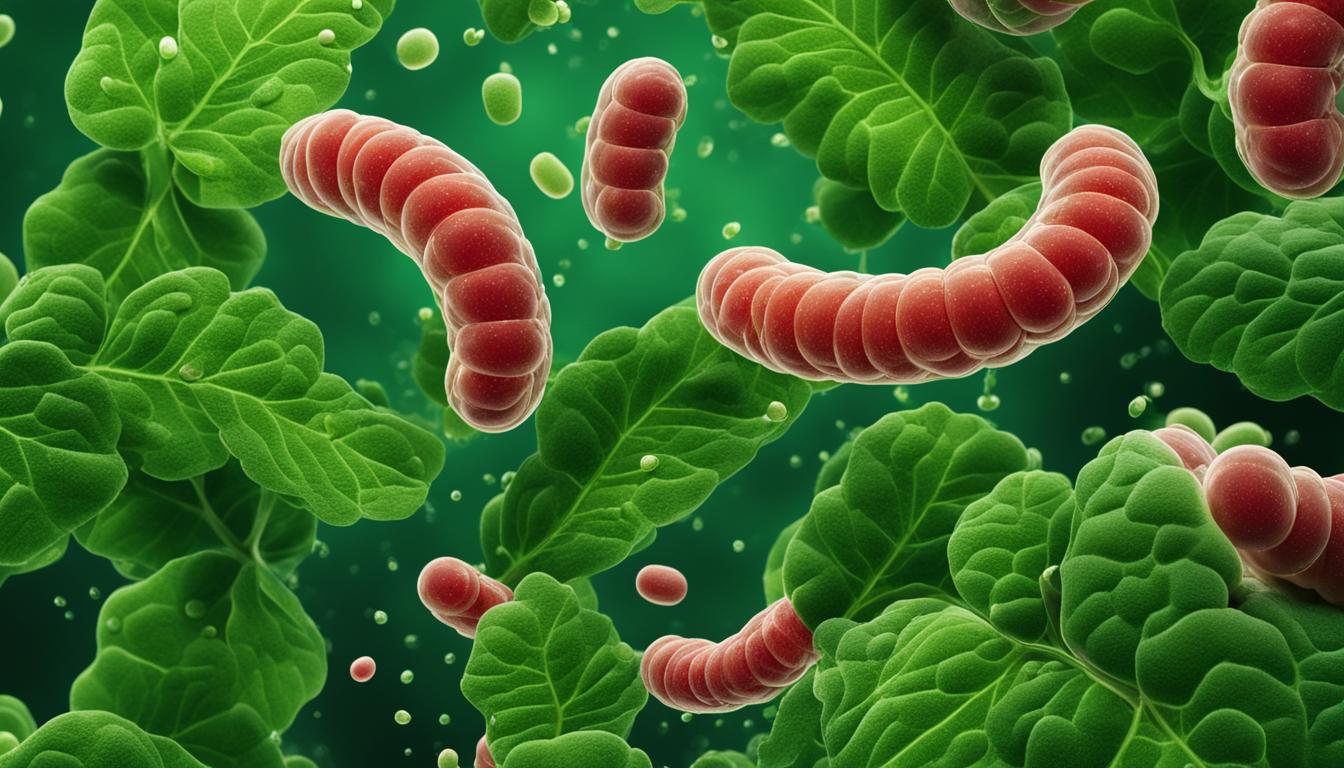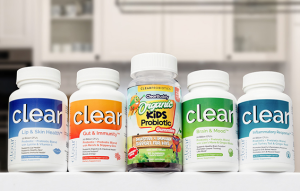Table of Contents
ToggleIntroduction
Dive into the fascinating world of gut health with our comprehensive guide on probiotics! Have you ever wondered, “How long do probiotics stay in your system?” You’re about to find out!
This article is your go-to resource for understanding the journey of these beneficial microorganisms inside your body.
We’ll unravel the mysteries behind their lifespan, their impact on gut health, and the key factors that influence their stay in your system. Get ready to embark on an enlightening journey that will transform the way you think about probiotics and your gut health. Let’s begin!
Key Takeaways:
- Probiotics can stay detectable in your system for up to three weeks if you take the right strain, sufficient CFUs, and continue taking the supplement consistently.
- Factors such as the type of probiotic, dosage, frequency, and use of medications can influence how long probiotics stay in your system.
- Although probiotics provide temporary benefits to the gut microbiome, the effects diminish within a few weeks after discontinuation.
- Prebiotics, found in fiber-rich foods, also play a crucial role in maintaining a healthy gut microbiome.
- Lifestyle factors, including a well-balanced diet, hydration, quality sleep, physical activity, and stress management, are key to supporting optimal gut health.
Now, let’s dive into the factors that affect how long probiotics stay in your system.

The Temporary Nature of Probiotic Effects
Probiotics can benefit the gut microbiome, but it’s crucial to recognize that these effects are temporary. Stopping probiotic intake often leads to the gut microbiome returning to its state before supplementation within a week.
The strain of probiotics determines the duration of their effects after a single dose. Typically, probiotics do not bring permanent changes to the gut microbiome and are likely to cease persisting once supplementation stops.
Consider a study that investigated a probiotic strain’s impact on gut health. Participants received a specific probiotic strain for four weeks. During this period, significant improvements in gut health, like reduced inflammation and enhanced microbiome diversity, emerged. However, these benefits gradually decreased and returned to initial levels within two weeks after stopping the probiotic.
This temporary effect aligns with the transient nature of probiotic strains in the gut. Probiotics offer temporary benefits by influencing microbial composition and function, but these effects heavily rely on continuous supplementation.
Research indicates that the degree of these temporary effects varies, depending on individual factors such as gut health, diet, and lifestyle. Stress, changes in diet, and medication use also play a role in the duration and intensity of probiotic effects.
Understanding the temporary nature of probiotic effects is essential when considering their use. Probiotics serve as a valuable tool for promoting a balanced gut microbiome and overall health, but they are not a permanent solution. Integrating them into a holistic approach that includes a healthy diet, regular exercise, and other lifestyle factors is crucial for maintaining a thriving gut ecosystem.

Prebiotics and Gut Health
Prebiotics, alongside probiotics, play a crucial role in maintaining a healthy gut microbiome.
These non-digestible food components, primarily fibers, act as a food source for beneficial bacteria in the gut.
Including garlic, onions, asparagus, bananas, oats, apples, flaxseeds, seaweed, and a variety of fruits, vegetables, and whole grains in your diet provides a rich supply of prebiotics.
These prebiotic foods not only nourish and support the growth of beneficial bacteria but also help in maintaining regular bowel movements, contributing significantly to a healthy digestive tract.
Lifestyle Factors for a Healthy Gut Microbiome
Maintaining a healthy gut microbiome requires more than just probiotic and prebiotic supplementation.
Our lifestyle choices play a crucial role in supporting optimal gut health. By incorporating certain habits into our daily routine, we can promote a well-balanced gut microbiome and improve overall digestive wellness.
Nourish Your Body with Colorful Plant-Based Foods
Eating a divee array ul plant-based fprovidevides essential nutrients and fiber that support a healthy gut.
Include a variety of fruits, vegetables, whole grains, legumes, and nuts in your diet.
These foods are rich in prebiotics, which nourish the beneficial bacteria in your gut and promote a thriving microbiome.
Incorporate Fermented Treats
Adding fermented foods to your diet, such as yogurt and sauerkraut, can introduce beneficial probiotics into your gut.
These probiotics help maintain a balanced microbiome and support digestion. Enjoying these tasty treats regularly can contribute to a healthier gut environment.
Stay Hydrated
Drinking an adequate amount of water is essential for a healthy gut.
Proper hydration keeps the digestive system functioning optimally, promoting regular bowel movements and preventing constipation. Aim to drink at least eight glasses of water per day.
Get Quality Sleep
Aiming for seven to nine hours of quality sleep each night plays a vital role in maintaining a healthy gut microbiome.
When you get sufficient sleep, you help preserve the delicate balance of bacteria in your gut. Conversely, poor sleep patterns can disrupt this balance, potentially leading to various digestive issues.
Ensuring consistent and restful sleep not only supports your gut health but also contributes to your overall well-being.
It’s important to establish a regular sleep schedule, create a calming bedtime routine, and optimize your sleep environment to achieve deep, restorative sleep.

Stay Active
Regular physical activity has numerous benefits for our health, including a positive impact on our gut microbiome.
Exercise helps improve digestion and promote the growth of beneficial gut bacteria. Aim for at least 30 minutes of moderate-intensity exercise most days of the week.
Manage Stress
Chronic stress can hurt our gut health. High levels of stress can disrupt the balance of bacteria in the gut and contribute to digestive issues.
Adopt stress-reducing techniques such as meditation, deep breathing exercises, or engaging in hobbies you enjoy to support a healthy gut microbiome.
These habits contribute to better digestion, nutrient absorption, and overall immune function, leading to a healthier and happier gut.
Understanding Probiotics and Their Benefits
Probiotics are live microorganisms, primarily bacteria, that offer health benefits when consumed in appropriate amounts.
They play a crucial role in maintaining digestive health, supporting the immune system, and potentially influencing mental health and mood.
One of the main functions of probiotics is to maintain the balance of good and bad bacteria in the gut.
By populating the digestive tract with beneficial bacteria, probiotics help strengthen the intestinal wall, enhance gut barrier function, and protect against harmful pathogens.
This can improve digestion, prevent infections, and promote overall well-being.
Probiotics have been shown to have several health benefits, including:
- Improving digestion and nutrient absorption
- Reducing the risk of diarrhea, constipation, and bloating
- Alleviating symptoms of irritable bowel syndrome (IBS)
- Supporting the immune system by enhancing the production of antibodies
- Reducing the risk of urinary tract infections
- Managing symptoms of lactose intolerance
Furthermore, emerging research suggests that probiotics may play a role in mental health and mood regulation.
The gut-brain axis, a bidirectional communication system between the gut and the brain, is thought to be influenced by the gut microbiota.
Probiotics positively impact this axis, potentially benefiting mental well-being and reducing symptoms of depression and anxiety.
While supplements offer a convenient and concentrated source, probiotics can also be found in a variety of fermented foods.
Yogurt, kefir, sauerkraut, and miso are all examples of probiotic-rich foods that can be easily incorporated into a balanced diet.
It’s important to note that different strains of probiotics serve different purposes, so it’s crucial to choose the right type of probiotic based on individual health concerns.

The Role of Probiotics in the Gut Microbiome
When the balance of the gut microbiome is disrupted due to factors such as poor diet, stress, or the use of antibiotics, it can lead to various digestive issues and weaken our immune system.
This is where probiotics come in.
Probiotics are live microorganisms that, when consumed in adequate amounts, can help restore and maintain the balance of the gut microbiome.
One way probiotics support the gut microbiome is by increasing the abundance of beneficial bacteria.
These beneficial bacteria, such as strains of Lactobacillus and Bifidobacterium, help strengthen the intestinal barrier, enhance nutrient absorption, and produce essential compounds that promote overall gut health.
Additionally, probiotics can have a positive impact on the immune system.
They help regulate the immune response within the gut, reducing inflammation and supporting the body’s defense against harmful pathogens.
This is particularly beneficial for individuals with conditions like irritable bowel syndrome (IBS) or inflammatory bowel disease (IBD), where an overactive immune response in the gut can cause chronic inflammation and discomfort.
It’s important to note that the changes induced by probiotics are not permanent.
Once you stop taking probiotic supplements, the populations of beneficial bacteria in your gut may gradually return to their original state.
Therefore, long-term and consistent intake of probiotics is often recommended to maintain a healthy gut microbiome.

Duration of Probiotic Effects and Considerations
Typically, probiotics begin exerting their effects soon after we ingest them, contributing to a balanced gut microbiome.
The most noticeable impact of probiotics on the gut usually becomes evident within a few days to weeks of consistent intake.
This time frame allows the probiotics to establish themselves and interact positively with the existing gut flora.
The beneficial effects, such as improved digestion, enhanced immune response, and reduced inflammation, typically last as long as the probiotics are present in the gut.
Once the intake of probiotics stops, their levels in the gut gradually decrease, and consequently, their beneficial effects begin to wane.
Usually, within a few weeks of discontinuing probiotic supplements, the gut microbiome starts returning to its pre-supplement state.
This transient nature of probiotic effects underscores the importance of continuous and consistent consumption for sustained benefits.
Thus, for those seeking long-term improvements in gut health, incorporating probiotics as a regular part of their diet or supplement regimen becomes essential.
Understanding the duration of probiotic effects helps in effectively planning and maintaining a health-focused lifestyle that optimally harnesses the benefits of these microorganisms.
Maintaining a Healthy Gut Microbiome
To truly support optimal gut health, we need to nurture our bodies with a well-balanced diet that includes fiber-rich and prebiotic foods.
These foods serve as fuel for the beneficial bacteria in our gut, helping to maintain a diverse and thriving microbiome.
But a healthy gut goes beyond just the food we eat. It’s also important to prioritize staying hydrated, getting enough sleep, engaging in regular physical activity, and managing stress.
A healthy gut microbiome is essential for digestive health, nutrient absorption, and a strong immune system.
It can also contribute to better mood and mental well-being.
Remember, it’s not just about probiotics.
It’s about the holistic approach to gut health that includes nourishing our bodies, staying active, and managing stress. Let’s prioritize our gut health and enjoy the benefits of a balanced and thriving gut microbiome.
Considerations for Long-Term Probiotic Use
While probiotics are generally safe, their prolonged use may require additional considerations to ensure optimal benefits and avoid potential risks.
Consulting with a healthcare provider can provide personalized guidance to determine the appropriate duration and type of probiotic supplementation based on individual needs.
Short-term probiotic use is commonly recommended, such as after a course of antibiotics or during episodes of gastrointestinal illness. However, if ongoing digestive issues persist or a specific condition can benefit from probiotics, longer-term use may be necessary to maintain a balanced gut microbiome.
As with any supplement, it is vital to monitor your body’s response to long-term probiotic use.
Ultimately, the goal of long-term probiotic use is to support the health and balance of your gut microbiome.
If you experience any adverse effects or uncertainties, reach out to your healthcare provider for further guidance. They can help evaluate whether adjusting the strain, dosage, or discontinuing probiotic use is necessary.

A Word from HealthyVibe
This exploration into the world of probiotics highlights their significant but temporary role in maintaining a healthy gut microbiome.
While probiotics typically remain active for up to three weeks, their enduring impact depends on various factors including strain selection, dosage, and consistency of intake. Their benefits, though substantial during their active period, gradually wane after discontinuation.
To bolster these temporary effects, integrating prebiotics through a diverse, fiber-rich diet proves essential.
It’s vital to understand that probiotics, while beneficial, are not a panacea; they form part of a broader strategy for nurturing our gut health.
For personalized guidance on probiotic use and to tailor a regimen that suits individual health needs and lifestyles, consulting a healthcare provider is crucial. Embracing this comprehensive perspective ensures a thriving, balanced gut microbiome, pivotal for overall well-being.
FAQ
How Long Do Probiotics Typically Remain Active in the Human System?
Probiotics typically remain active in the human system for up to three weeks. The specific strain, dosage, and consistent intake determine their duration. However, their effects are temporary and often diminish a few weeks after you stop taking them.
What Factors Affect the Duration and Effectiveness of Probiotics in the System?
The type of probiotic strain, the dosage taken, how frequently you take them, your individual gut health, diet, lifestyle choices, and medication use all affect the duration and effectiveness of probiotics.
Do Probiotics Permanently Change the Gut Microbiome?
Probiotics do not permanently change the gut microbiome. Their benefits are temporary, and the gut microbiome usually returns to its state before supplementation once you stop taking probiotics.
How Do Prebiotics Support Gut Health?
Prebiotics, found in fiber-rich foods, nourish beneficial bacteria in the gut. They play a vital role in maintaining a healthy gut microbiome and complement the effects of probiotics.
What Lifestyle Choices Support a Healthy Gut Microbiome Besides Taking Probiotics?
Eating a balanced diet with plenty of prebiotics and fiber, staying hydrated, getting enough quality sleep, engaging in regular exercise, and managing stress effectively are crucial for supporting a healthy gut microbiome. These habits, along with probiotics, promote overall gut health.










